OSSU’s fourteen Research Centres offer world leading expertise in data access, methodological and research services, knowledge translation, clinical trials, capacity building and more. These organizations work together, and in concert with the Coordinating Centre, to provide Ontario’s health system stakeholders with the infrastructure, scientific knowledge and technical support needed to conduct patient-oriented research, and to inform and implement more effective health policy and clinical practices throughout the province.
Applied Health Research CentreTop
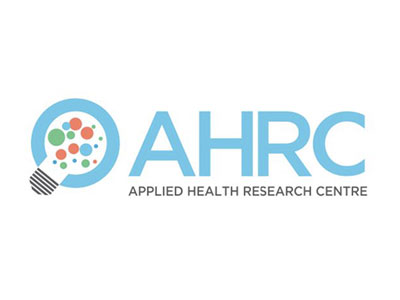
The Applied Health Research Centre (AHRC) is an Academic Research Organization (ARO) at the Li Ka Shing Knowledge Institute of St. Michael’s Hospital in Toronto, with expertise in clinical study design, pragmatic methodology, and biostatistics. The AHRC has experience managing more than 100 multi-site, national and international clinical trials, observational studies, and qualitative studies. The AHRC employs industry-leading web-based secure database technology, which incorporates advanced data validation and reporting tools. Through its service model, the AHRC is one of the only research organizations to offer a comprehensive services package – a true one-stop-shop for patient-oriented clinical research. The AHRC is committed to providing our partners with efficient and innovative strategies for clinical research that inform patient care and policy decisions. As a result of this approach, the AHRC has grown to be one of the largest academic research organizations in Canada.
Contact
Select Publications
- Publication: https://pubmed.ncbi.nlm.nih.gov/32668114/
- Publication: https://pubmed.ncbi.nlm.nih.gov/31269364/
- Publication: https://pubmed.ncbi.nlm.nih.gov/30146969/
- Video: What is diabetic ketoacidosis (DKA)? – DiaBiteSize
- Video: Young Parents Connect
Centre for Rural and Northern Health ResearchTop
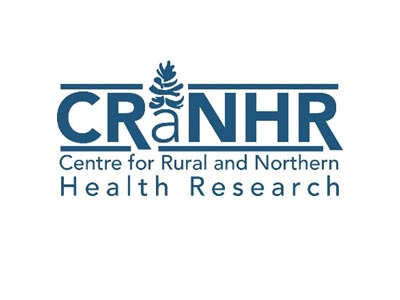
The Centre for Rural and Northern Health Research (CRaNHR) is an academic and applied health research centre at Laurentian University, Sudbury, Ontario. CRaNHR’s mandate is to conduct interdisciplinary research on rural health, with a focus on Indigenous and Francophone populations, to improve health services and access to health care in rural and northern communities and enhance understanding of the health care system.
CRaNHR supports health equity for rural and northern Ontarians through engagement that is responsive to the sex, gender, nationality, and cultural-linguistic diversity of local stakeholders and through collaboration with diverse local, regional, and international partners.
The Centre’s staff actively engage in capacity-building to develop new researchers, orient institutions to rural and northern contexts, promote data access and use, and support vulnerable populations in all consultation and research activities. The Centre also acts as one of the Leads for the Early Career Researcher Initiative.
CRaNHR provides timely, in-depth research and evaluation findings to participants, funders, and community stakeholders. The Centre employs multiple knowledge mobilization techniques that are responsive to specific needs of knowledge users and serve to facilitate the multi-directional flow of information among all partners. For instance, CRaNHR’s Research in FOCUS on Research series provides a 4-page reader-friendly bulletin to facilitate broad dissemination.
Patient-oriented studies, interventions, and knowledge mobilization activities are consistent with CRaNHR’s role as an academic and applied research centre. CRaNHR supports OSSU’s Francophone Initiative and leads support for the Métis and Inuit-Indigenous Initiative.
Contact
- Diana Urajnik, Lead on SPOR research, durajnik@laurentian.ca
- www.cranhr.ca
Select Publications
- 2020: Retaining graduates of non-metropolitan medical schools for practice in the local area: The importance of locally based postgraduate training pathways in Australia and Canada.
- 2020: Communauté immigrante francophone du Grand Sudbury : un état des lieux des services disponibles et des besoins d’accueil.
- 2020: Processus de développement d’une trousse d’accompagnement pour l’examen médical des nouveaux arrivants francophones : un exemple de coopération.
- 2019: Community-Based Emergency Care: Participant Workbook. Toronto: Community-Based Emergency Care.
- 2019: Tracking Indigenous applicants through the admissions process of a socially accountable medical school: findings from the Northern Ontario School of Medicine in Canada.
- 2017: Culturally Safe Integrated Care Research Phase 2 Report: Evaluation of the Best of Both Worlds Cultural Safety Workshop.
Clinical Trials OntarioTop
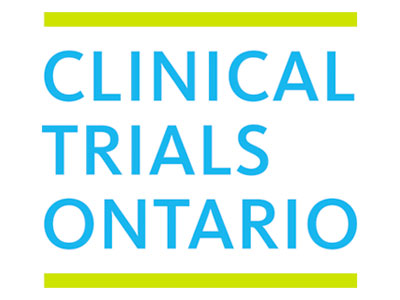
Clinical Trials Ontario is a leading organization in the clinical trials community dedicated to strengthening, promoting, and capitalizing on Ontario’s competitive advantages for conducting high-quality clinical trials. We work collaboratively with industry, research institutes, patients and the public and other health innovation organizations to improve the clinical trials environment and attract investment to the province, while supporting the highest ethical and quality standards.
Contact
Health System Performance Network - Institute for Better HealthTop
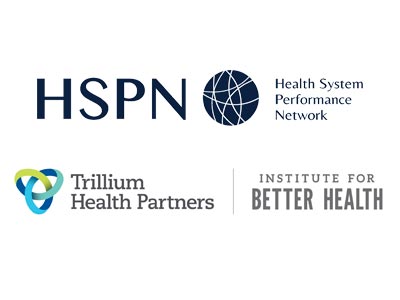
The Health System Performance Network (HSPN) is a multi-university and multi-institutional network of Ontario researchers. We work closely with policy and provider decision makers, to find ways to improve management of the health system. Our network includes investigators, trainees and project staff. HSPN researchers develop high quality evidence that is relevant to health system policy development and decision making for performance excellence. HSPN was established in 2009 and has built a track record in performance measurement, research, evaluation and improvement in Ontario with expertise in multiple domains of health system performance including perspectives of patients, providers, population health, and cost. The Institute for Better Health is an embedded research unit within Trillium Health Partners and the Mississauga community. Our research focuses on learning health system our focus is on developing learning health system capabilities in the areas of integrated care and finance, data-driven population health management, and patient and family engagement in system design.
Contact
ICESTop
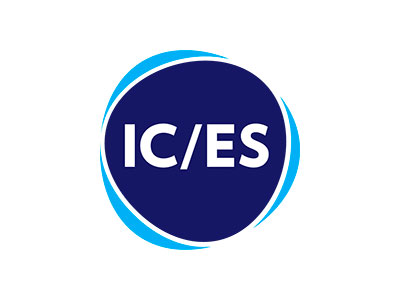
As an OSSU research centre, ICES provides researchers, students and knowledge users with access to the largest and most comprehensive collection of health-related data in Ontario through ICES Data & Analytic Services (ICES DAS).
ICES DAS offers several types of services to researchers who receive funding from the public sector such as secure online access to research-ready, linked health administrative and clinical data, analytic tools including high-performance computing, and subject matter experts.
Public sector researchers are considered to be any of the following:
- Researchers and students affiliated with a university, college, hospital or other institutions
- Publicly-funded, not-for-profit health care agencies and research organizations
- Policy makers
- Other publicly funded knowledge users who require data or analytic services to support the development of evidence-informed policies and practices Services are also available for private sector researchers.
Contact
Select Publications
INSPIRE – Primary Health CareTop

INSPIRE – Primary Health Care focuses on Primary Health Care (PHC) research, assisting Ontario researchers with primary health care-data platform access, specific research consultation, funding, stakeholder engagement, knowledge translation and exchange (KTE), capacity building opportunities and activities, and patient engagement resources.
INSPIRE-PHC provides:
- consultations to all Ontario researchers and knowledge users on primary health care specific research methodology/processes;
- capacity building courses and other opportunities for the next generation of primary health care researchers;
- a Patient Engagement Resource Centre; and,
- knowledge translation and exchange opportunities, events and research.
The program can offer: ideas for primary health care collaborators on research projects; knowledge translation and exchange and patient engagement expertise and advice; and, dissemination of information to a larger network of interdisciplinary primary health care related researchers and decision makers.
This Primary Health Care research resource is composed of a Pan-Ontario team of researchers working with a broader network of decision makers, trainees and researchers.
Contact
- Eliot Frymire, Manager, frymire@queensu.ca or Dr. Mike Green, Lead, michael.green@queensu.ca
- https://inspire-phc.org/
Select Publications
Knowledge Translation Program Top
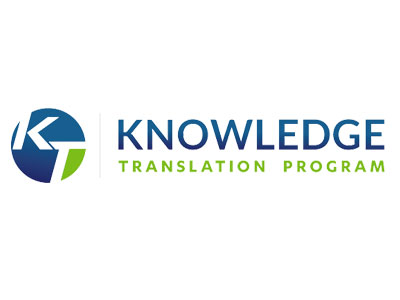
The Knowledge Translation Program (KTP) works with researchers to develop a strategy to put knowledge into practice at both the clinical and policy levels. Our vision is to ensure high quality evidence reaches patients, health care providers and other decision-makers using effective strategies to improve quality of care. By focusing on the processes through which knowledge is effectively translated into changed decision making and using an equity-focused and inclusive approach, we play a critical role in improving patient care and strengthening the health system.
Contact
- Meghan Storey, Meghan.Storey@unityhealth.to
- www.knowledgetranslation.net
Select Publications
McMaster Collaborative for Health & AgingTop
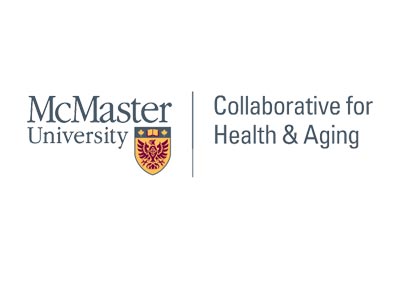
The McMaster Collaborative for Health and Aging is a coalition of researchers, trainees, and older adults and caregivers working together to improve the health and well-being of older Canadians by advancing patient-oriented health research on aging. The Collaborative provides consultation and support, promotes training and mentorship, and facilitates partnerships and knowledge translation within three key areas: Science of engagement with older adults; Complex health interventions for older adults and caregivers; and Access and use of secondary data for healthy aging. Activities within these areas of focus include 1) development of resources and provision of research support services for the engagement of patients, caregivers and the public in health research in aging; 2) development of resources, online learning modules, and provision of research support services for the co-design, implementation, evaluation, scale-up and spread of integrated, complex older adult-centred health interventions; 3) development of resources and provision of guidance to support access and use of Canadian Longitudinal Study on Aging and ICES-linked data.
Contact
- Email: collabor@mcmaster.ca
- Soo Chan Carusone, PhD Manager, Strategic Initiatives chansy@mcmaster.ca
- www.collaborative-aging.mcmaster.ca
Select Publications
- Abelson, J., Ganann, R., Heald-Taylor, G., Markle-Reid, M., Petrie, P., Raina, P. Partnering principles and strategies: A guidance document (Available from: https://collaborative-aging.mcmaster.ca/resources/guidance-documents/ )
- Fisher, K., Ploeg, J., Lamarche, L. Module: Scale & Spread of Health Interventions (Available from: https://collaborative-aging.mcmaster.ca/resources/learning-modules/ )
- Markle-Reid, M., Ganann, R., Ploeg, J., Heald-Taylor, G., Kennedy, L., McAiney, C., Valaitis, R. (2021). Engagement of older adults with multimorbidity as patient research partners: Lessons from a patient-oriented research program. Journal of Multimorbidity and Comorbidity, 11,1-11. https://doi.org/10.1177%2F2633556521999508.
McMaster Health ForumTop
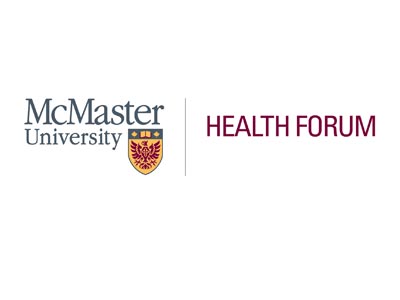
The McMaster Health Forum’s goal is to generate action on the pressing health-system issues of our time, based on the best available research evidence and systematically elicited citizen values and stakeholder insights. We aim to strengthen health and social systems – locally, nationally, and internationally – and get the right programs, services and products to the people who need them. The Forum works through a number of networks to accelerate its impacts on health and social systems, which includes Rapid-Improvement Support and Exchange (RISE), through which it supports rapid learning and improvement among Ontario Health Teams (OHTs).
RISE has four program objectives:
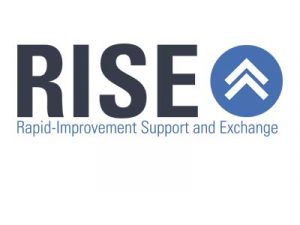 Support rapid learning and improvement among OHTs (through learning and improvement collaboratives as well as through a coaching initiative)
Support rapid learning and improvement among OHTs (through learning and improvement collaboratives as well as through a coaching initiative)- Deliver ‘on demand’ (or facilitate the delivery of) a suite of activities and products for OHTs (e.g., RISE jamborees and RISE briefs)
- Share tools and resources with OHTs (through the website, e-newsletter, webinars, Twitter, etc.)
- Support the province’s COVID-19 response (by preparing rapid evidence profiles and contributing to key COVID-END initiatives such as its guide to key COVID-19 evidence sources, horizon-scanning panel, and inventory of ‘best evidence syntheses).
Contact
Select Publications
Ontario Brain InstituteTop
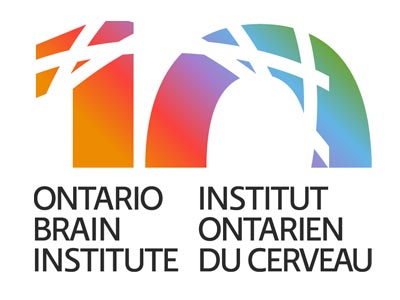
The Ontario Brain Institute (OBI) is a not-for-profit institution that reflects the commitment of the government and people of Ontario to be a world leader in brain health. A different kind of Institute, we are pioneering an open-source, “team science” approach. OBI integrates the will, knowledge and resources that creates new connections across research, commercialization and care.
Supports we can provide:
- Patient engagement in research;
- Knowledge translation, exchange and implementation;
- Data platforms: Data storage, management and curation; and,
- Capacity building and career development: Internships and entrepreneurship support
Contact
- Jordan Antflick at jantflick@braininstitute.ca
- www.braininstitute.ca
Ontario Child Health SUPPORT UnitTop
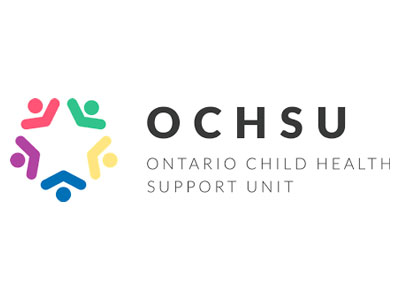
The Ontario Child Health SUPPORT Unit (OCHSU) – led by The Hospital for Sick Children (SickKids) and the Children’s Hospital of Eastern Ontario (CHEO) – provides methodological support to researchers to enhance the quality of and to build capacity in patient-oriented research in child health research across Ontario.
OCHSU support includes:
- Methodological Support Services:
- Health Economics, Clinical Research Design and Analysis.
- Using Data for Real World Clinical Research
- eMR Data Platforms: EPIC integration and Research Data Warehouse
- Inventory of Child Health Datasets (N>100)
- Clinical Research Data Management:
- REDCap Instance Support
- Project Support – database development, data set organization & cleaning, Case Report Form development, data formatting and coding).
- Patient and Family Engagement in Child Health Research:
- Raising Awareness of Patient-Oriented Research in Child Health via seminars and webinars
- Training in Patient-Oriented Research in Child Health via the PORCCH Curriculum:
- Research 101 (parts 1 and 2) developed for patients and families
- Patient Engagement 101 (parts 1 and 2) developed for researchers
- Consultation on Patient and Family Engagement – incorporation of the patient and family perspective in child health research via grant review, document review, and matching patient partners with researchers
- Leadership in Patient-Oriented Research in Child Health:
- Family Leader Coordinator (Research) – CHEO
- Patient & Family Engagement Coordinator (Research) – SickKids
- Family Leader Program
- Family Advisory Networks
Contact
Ontario Drug Policy Research NetworkTop
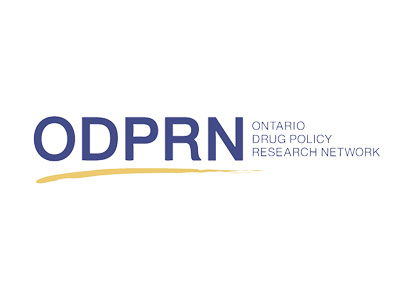
The Ontario Drug Policy Research Network (ODPRN) is a network of researchers and drug policy-makers across Ontario that aims to respond rapidly to the need for high-quality, timely, relevant and scientifically rigorous research to support drug policy decisions. The network’s core mandates are to generate scientifically sound evidence related to real-world drug utilization, safety, effectiveness, and costs of drugs in Ontario, and to develop partnerships for cross-provincial comparisons of drug safety and utilization. The ODPRN also aims to focus its research agenda on priority areas identified by patients and the general public through meaningful engagement, consultation, collaboration, and integration of patients and citizens throughout its entire research process.
Description of services:
- Generate rapid research evidence for drug policy-makers and other knowledge users to inform and evaluate drug policy-related decisions.
- Support engagement with individuals with lived experience, a Citizen’s Panel, and external drug policy stakeholders to facilitate integration of varied perspectives and feedback into research.
- Develop knowledge translation tools (e.g., research summaries, infographics, interactive dashboards and maps) to communicate findings to relevant stakeholders (including patients, policy-makers and clinicians).
- Provide training for students and patients interested in drug policy and drug safety research.
Contact
Select Publications
- Citizens’ Panel led report: Characterizing Prescription Benzodiazepine Use Among Community-Dwelling Residents of Ontario, Canada
- Current and Prospective Utilization of Innovator Biologics and Biosimilars in Ontario
- Preliminary Patterns in Circumstances Surrounding Opioid-Related Deaths in Ontario during the COVID-19 Pandemic
- “Like Being Put on an Ice Floe and Shoved Away: A Qualitative Study of the Impacts of Opioid-Related Policy Changes on People who Take Opioids
- A Qualitative Study of a Publicly Funded Pharmacy-Dispensed Naloxone Program
Ottawa Methods CentreTop
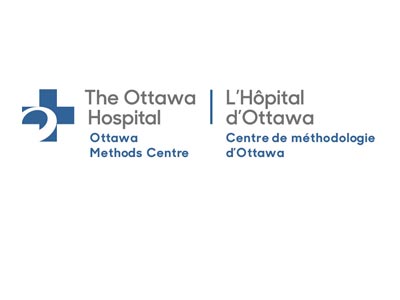
The Ottawa Methods Centre (OMC), a sub-unit of the Ottawa Hospital Research Institute, provides expert methods consultation to researchers, decision-makers, and other key stakeholder across Ontario and who are engaged in patient-oriented research. We offer a range of services including providing nose-to-tail support from grant and protocol development, through study implementation, to data analysis and knowledge translation. We offer support for a range of patient-oriented research approaches including: real world clinical trials, statistical consultation, data management and big data analytics, qualitative methods including consensus approaches, health economics, knowledge syntheses, and knowledge translation and evidence implementation. Our robust infrastructure of services includes a specific focus on patient engagement wherein we offer training, mentorship, and conduct specialized methods research.
Contact
- Stuart Nicholls, snicholls@ohri.ca
- www.ohri.ca/spor-omc
- www.ohri.ca/ottawamethodscentre
Select Publications
- Demonstrating the value of patient-oriented research in Ontario, CMAJ, November 07, 2018
- The prevalence of patient engagement in published trials: a systematic review, Research Involvement and Engagement, May 22, 2018. Fergusson, D., Z. Monfaredi, K. Pussegoda, C. Garritty, A. Lyddiatt, B. Shea, L. Duffett, M. Ghannad, J. Montroy, M. Hassan Murad, M. Pratt, T. Rader, R. Shorr and F. Yazdi
- Foster, M., D. A. Fergusson, T. Hawrysh, J. Presseau, N. Kekre, S. Schwartz, G. Castillo, S. Asad, G. Fox, H. Atkins, K. Thavorn, J. Montroy, R. A. Holt, Z. Monfaredi and M. M. Lalu (2020). “Partnering with patients to get better outcomes with chimeric antigen receptor T-cell therapy: towards engagement of patients in early phase trials.” Res Involv Engagem 6: 61.
- Nicholls, S. G., K. Carroll, S. P. Hey, M. Zwarenstein, J. Zhang, H. Nix, J. C. Brehaut, J. E. McKenzie, S. McDonald, C. Weijer, D. Fergusson and M. Taljaard (2021). “A review of pragmatic trials found a high degree of diversity in design and scope, deficiencies in reporting and trial registry data, and poor indexing.” J Clin Epidemiol.
Sex and Gender Plus Research SupportTop
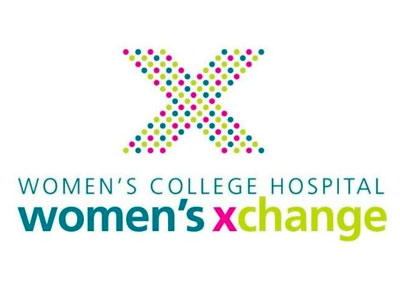
The Sex and Gender+ Research Support Service is a research knowledge translation and capacity-building initiative within Women’s College Hospital that advances and supports the integration of an intersectional sex and gender lens (SGBA+) in health research in Ontario and beyond. Our aim is to aid principal investigators, patient partners and other team members, in considering how to effectively integrate sex, gender and other determinants of health in their studies – from the initial research question through knowledge translation and dissemination. We develop presentations and educational materials to enhance the quality of research studies through SGBA+, as well as publications for academic and general audiences. Study consultation and proposal review through a sex and gender lens are available on a cost-recovery basis.
Contact
Select Publications
- Doing Better: Eleven Strategies to Integrate a Sex and Gender Plus Lens in Health Research. Research Integrity and Peer Review, 2020, 5(15):1-3.
- There’s a Health Gap in Canada – and Women are Falling Through It. The Globe and Mail, Mar. 5, 2019.
- Measuring the data gap: Inclusion of sex and gender reporting in diabetes research. (2019) Research Integrity and Peer Review 4(9).
- Essential metrics for assessing sex and gender integration in health research proposals involving human participants, PLOS One, August 2017.